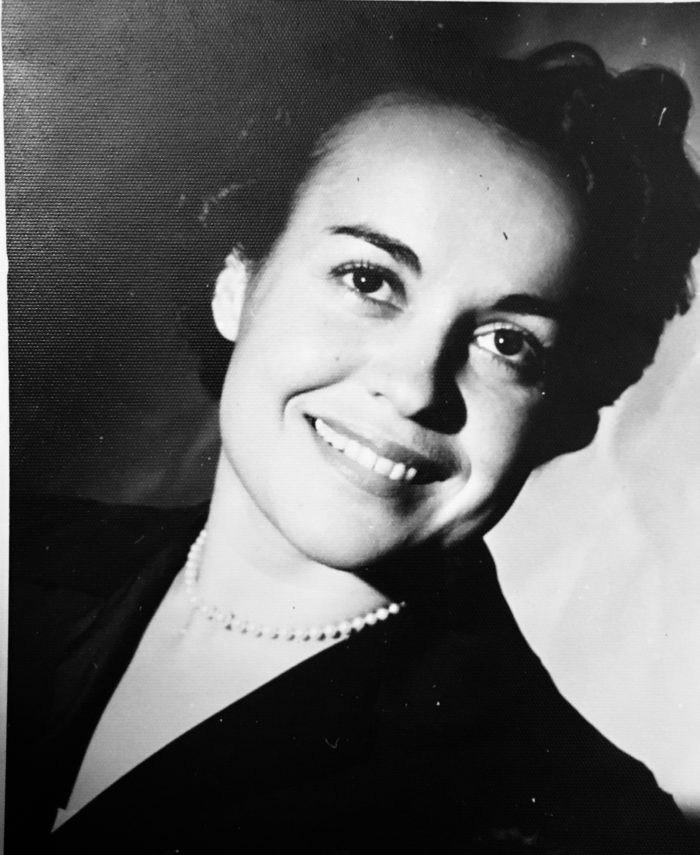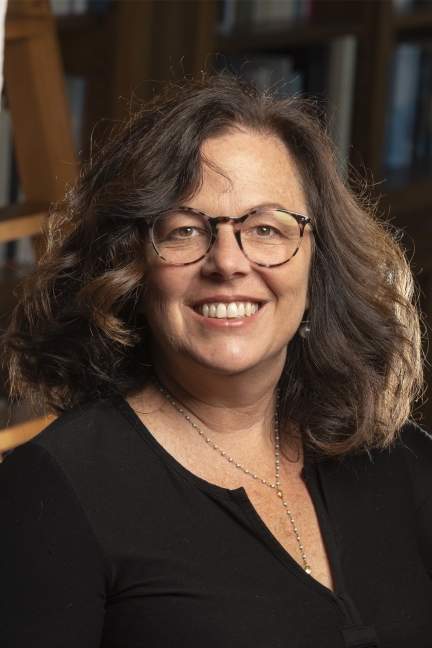by Gwen Strauss
The Nine follows the true story of author Gwen Strauss’s great aunt Hélène Podliasky, who led a band of nine female resistance fighters as they escaped a German forced labor camp and made a ten-day journey across the front lines of WWII from Germany back to Paris. The following excerpt marks the beginning of the group’s long, harrowing escape from Nazi Germany.
A woman broke from the line and ran into the field of undulating bright yellow rape flowers. She ripped the blossoms from the stems with both hands, stuffing them into her mouth. Though exhausted and dazed, everyone noticed, and her action sent an electric panic through the rows of women. Stunned, Hélène waited for the sound of the gunshot that would surely follow. It could be machine-gun fire that would take out a whole section—any section, maybe theirs. The guards could do this: shoot indiscriminately into the rows to teach them a lesson. But nothing happened. All she heard was the continuous drumming of wooden clogs from thousands of marching feet.
When the woman ran back to the column, Hélène saw that her face was speckled with bits of yellow; she was smiling.
Then another woman ran into the field and gathered as many flowers as she could, using the rags of her tattered coat to hold them. When she got back into line, women jostled one another to reach her, grabbing at the flowers in a frenzy and eating them.
Why were they getting away with this?
Yesterday, a woman only a few rows ahead of Hélène had been shot in the head when she tried to pick up a half-rotted apple.
Hélène looked around. Their column was overextended. There were gaps between the rows and the sections. There were no guards in sight.
“Now!” she whispered urgently to Jacky, elbowing her.
“But we agreed to wait for dark,” Jacky whispered back, her voice raspy and terrified.
Hélène tapped Zinka’s shoulder. “Look!” she said. “No guards!”
“Oui, I see.” Zinka nodded and grabbed Zaza’s hand, saying, “It’s our best chance.”
They came to a curve in the road. A dirt road intersected their route, and parallel to that was a deep ditch. Hélène knew this was the moment. They had to go as two rows, all together, so they wouldn’t be noticed. Zinka, Zaza, Lon, Mena, and Guigui, who were in the row in front of her, slid out, and then Hélène led Jacky, Nicole, and Josée. A fifth woman who had fallen into their row balked, saying she was too tired.
“Forget her, then!” Hélène hissed, and pulled her friends along. “Quick!”
They were nine women in all. Holding hands, they slipped sideways out of the column and jumped into the trench, one after the other. They lay flat on the ground in the deepest part of the ditch, where the earth was damp. Hélène felt her heart beating against her ribs. She was so thirsty she tried licking the mud. She couldn’t bring herself to look up to see if they were about to be discovered, to see if she would die shot in a ditch as she licked the earth. Instead she looked over to Lon, who was staring up at the road.
“What do you see?” Hélène whispered. “Are we visible?”
“Just feet.” Lon watched the endless rows of women trudging by, half of them barefoot, half of them in wooden clogs. All of the muddied bare feet were red and bleeding.
Lon reassured her that they were hidden from view. In any case, the marchers had passed so many corpses along the way that this heap of women at the bottom of a ditch probably looked just like another pile of dead bodies.
With their arms draped around one another and their hearts pounding, they waited for the beat of the clogs dragging on the ground to fade. When the column was no longer in sight and they could no longer hear the rhythmic pounding of feet, Lon said, “It’s clear.”
“Now! We need to move.” Hélène stood and led them along the ditch in the opposite direction. But they were soon out of breath and overcome with sheer euphoria. They climbed out of the ditch and collapsed in the field. They lay there looking up at the sky, clasping hands, and laughing hysterically.
They had done it! They had escaped!
But now they were in the middle of Saxony, facing frightened and hostile German villagers, angry fleeing officers of Germany’s Schutzstaffel (SS), the Russian army, and Allied bombers overhead. The Americans were somewhere nearby, they hoped. They had to find the Americans or die trying.
Copyright © 2021 by Gwen Strauss
Enter here for your chance to win an advance copy of The Nine by Gwen Strauss:
Gwen Strauss’s poems, short stories and essays have appeared in numerous journals including The New Republic, London Sunday Times, New England Review, and Kenyon Review and she has published a collection of poetry, Trail of Stones. She was born and spent her early years in Haiti. Strauss lives in Southern France, where she is the Director of the artist’s residency program at the Dora Maar House.



